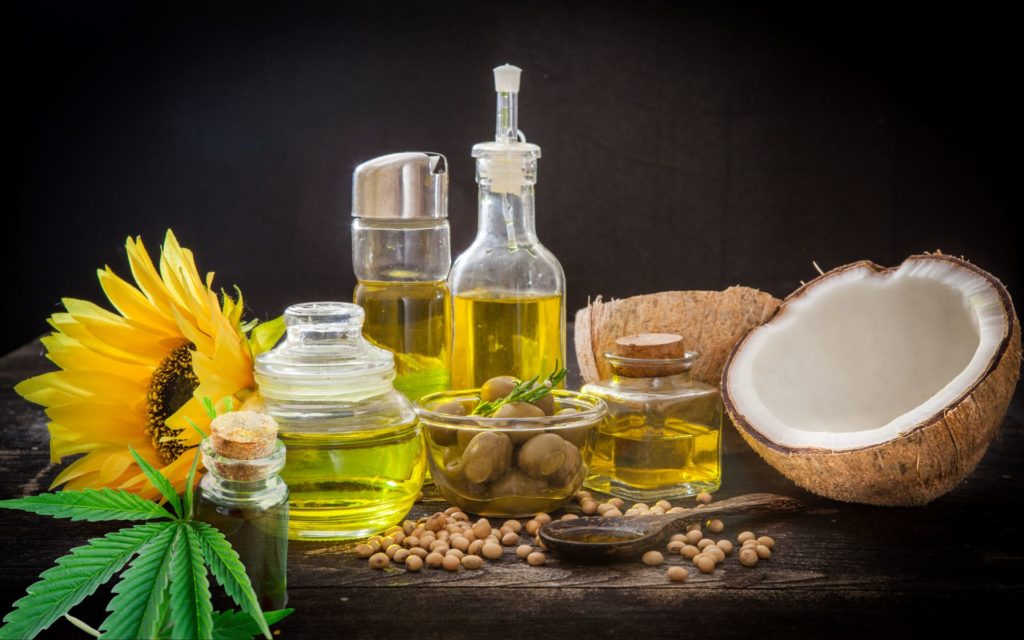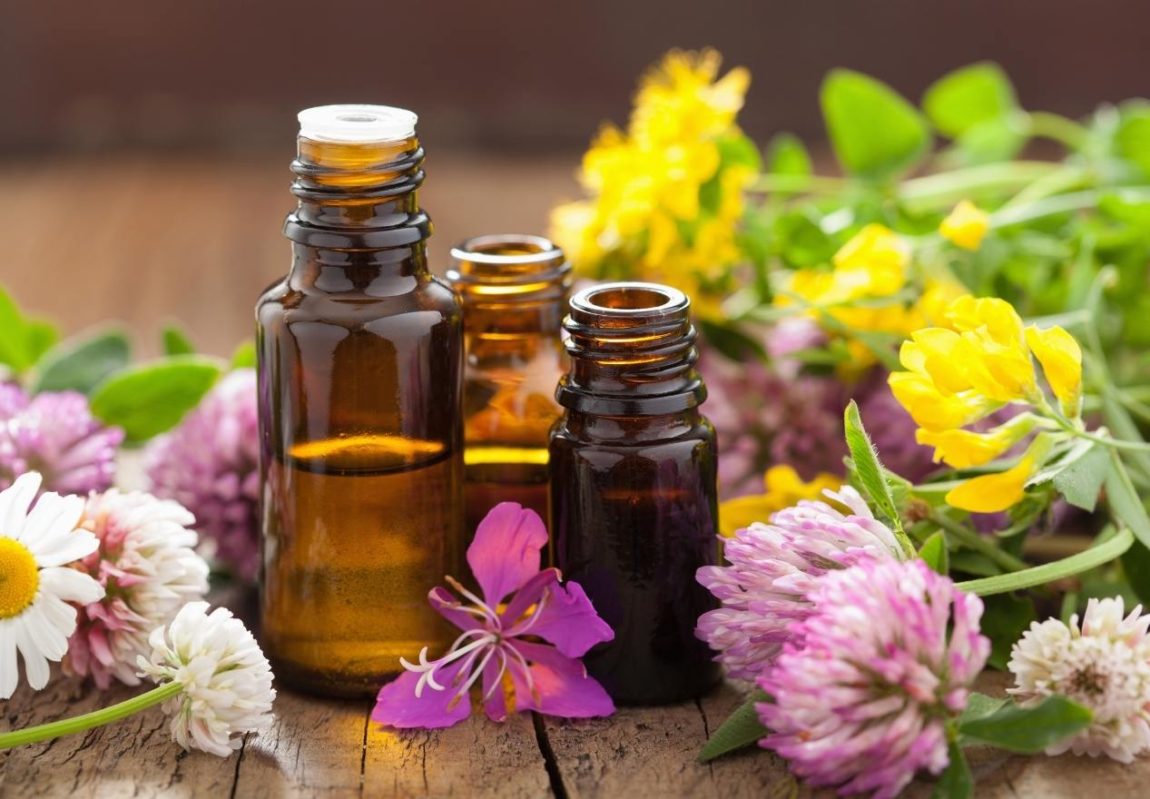Essential oils have been used for medicinal and health purposes in various cultures for thousands of years.
They have recently gained popularity as a natural, safe, and cost-effective therapy for various health concerns due to their antidepressant, stimulating, detoxifying, antibacterial, antiviral, and calming properties.
Given the high cost of healthcare and the side effects of conventional medications, it’s no surprise that incorporating such oils into your medicine cabinet and lifestyle can make a world of difference.
This is especially true given the wide range of essential oil benefits and uses, including:
- Aromatherapy
- Household cleaning products
- Personal beauty care
- Natural medicine treatments
Essential oils are well on their way to becoming a 15 billion dollar industry by 2025.
What are Essential Oils?
Essential oils are highly concentrated natural oils derived from various plant parts.
They are responsible for the distinct aromas of plants and are extracted through a variety of methods, including:
- Distillation (using water)
- Expression (expressed mechanically or cold-pressed)
The distillation process separates the oil and water-based compounds of a plant by steaming them. Because of their high concentration of aromatic compounds, they are sometimes referred to as volatile aromatic oils.
By concentrating the oils of these plants, you are separating the plant’s most potent healing compounds into a single oil.
Plants’ therapeutic oils protect them from insects, shield them from harsh environments, and help them adapt to their surroundings. By ingesting essential oils, you are harnessing a plant’s protective and beneficial properties.
Essential oils are made up of tiny molecules that can penetrate your cells and, in some cases, cross the blood-brain barrier. They differ from fatty oils derived from large molecules (such as those found in vegetables or nuts) in that they cannot penetrate your cells and thus are not therapeutic in the same way.
 Benefits of Essential Oils
Benefits of Essential Oils
Essential oils have numerous health and well-being benefits, but they are also used in beauty products due to their usefulness when applied topically to the skin or hair. They can also:
- Help balance hormones like:
- Estrogen
- Progesterone
- Cortisol
- Thyroid
- Testosterone
- Help boost immunity and fight infections.
- Have anti-inflammatory, antiviral, antibacterial, antiseptic, and antifungal properties.
- Support digestion
- Boost energy levels
- Improve brain function
- Reduce Emotional Stress & Anxiety
- Alleviates Aches and Pains
- Better skin and hair health
- Reduce toxicity
- Headache/Migraine relief
- Promote restful sleep
How to Use Essential Oils
Before you begin using essential oils, you should be aware that they are highly concentrated. Most of them should not be applied directly to the skin due to the possibility of skin sensitivity.
When trying an oil for the first time, it is best to dilute more potent oils. Only in this manner can you avoid severe reactions, especially if you have sensitive skin.
The typical dilution ratio is one drop of essential oil to three drops of carrier oil (you can use almond, jojoba, or olive oil as a carrier oil).
Of course, you can use more carrier oil if necessary; it all depends on the purpose of your application.
You can use essential oils in many ways, but here are some of the most popular:
- Apply to the skin –mix them with a carrier oil and apply them to your skin.
- Inhale – Open the bottle of essential oils, hold it up against your nose or place a few drops on a tissue and inhale.
- Steam Inhalation – Boil 2-3cups of water, pour it into a bowl, add 2-5 drops of oil to the water, and slowly inhale the steam.
- Oil Diffuser – Electronic diffusers will gently fill the air with the aroma within minutes.
- In a Bath – Add essential oils to your bath to give your skin a chance to soak in the benefits in a relaxing way slowly.
- Massage – Mix essential oils with neutral carrier oils and massage your body.
- Cleaning – Mix certain essential oils with water and use them to clean your home as a chemically free source.
Common Essential Oils and Their Uses
Lavender Essential Oil
- analgesic (offers relief from pain)
- antidepressant
- antispasmodic (helps relieve muscle spasms and cramps)
- sedative
- antiseptic (antimicrobial)
Peppermint Essential Oil
- antiseptic (antimicrobial)
- antispasmodic (helps relieve muscle spasms and cramps)
- diaphoretic (helps to induce involuntary perspiration that helps to reduce fever, cool the body, and speed the elimination of toxins from the system)
- mild analgesic (offers gentle relief from pain)
- mild sedative
- relieves wind
Eucalyptus Essential Oil
- antiseptic (antimicrobial)
- expectorant (helps loosen mucus)
- anti-inflammatory
- antibacterial
Tea Tree Essential Oil
- antifungal
- antiseptic
Ylang Ylang Essential Oil
- antidepressant
- antiseborrheic (effective in seborrheic dermatitis – dandruff)
- antiseptic
- aphrodisiac
- hypotensive (lowers the blood pressure)
- nervine (calms the nerves)
Tips to Buy Essential Oils
If you’re going to buy essential oils, make sure they’re pure essential oils with nothing added.
Look for bottles that state organic essential oils because they will be free of pesticide residue and of higher quality.
When it comes to Essential oils, cheaper usually means low-quality and less guarantee of the ingredients and potency.
Keep in mind that low-quality essential oils can be harmful to your skin while failing to provide the necessary therapeutic benefits.
To increase your chances of receiving high-quality essential oils, purchase from a supplier who adheres to strict purity standards.
As a general rule, if the brand or retailer cannot tell you where the oil comes from, buy it elsewhere. It is recommended that you obtain the botanical name, distillation method, and harvest date.
Because potentially harmful side effects can be caused by aging, bacteria, yeast, or mold, it is critical to understand an oil’s shelf life, which varies across the spectrum.
As an example: Citrus oil and peppermint oil, even when stored in a cool, dark place, deteriorate faster than lavender oil, which can last up to 6 years.
If you’re unsure, the FDA-mandated shelf life of two years for most personal care products is a good bet. Also, if the oil develops a strong odor, discard it.


No Comments